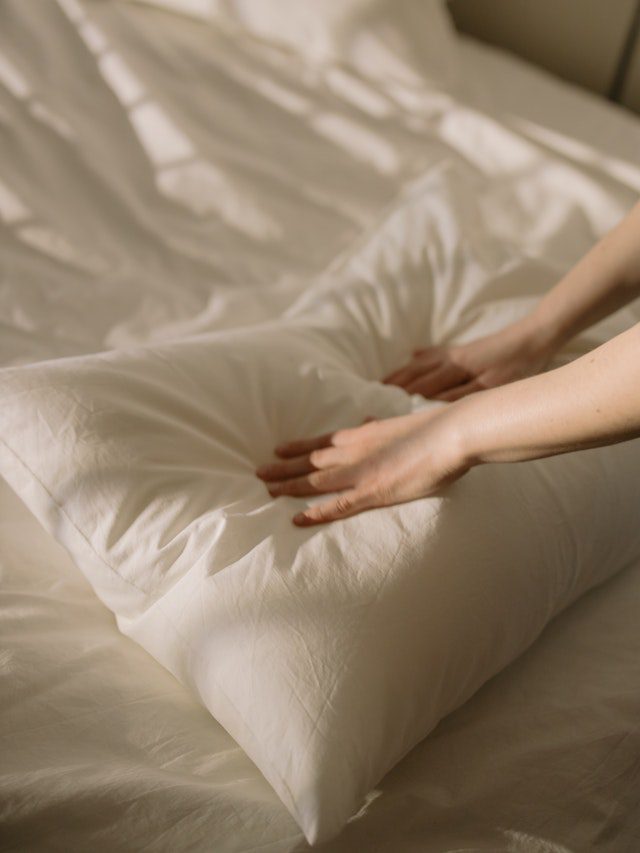Clean bedsheets are essential for promoting a quality night’s sleep and improving personal hygiene, so failing to achieve good sleep could harm your well-being and mood. Sleep expert April Mayer from Amerisleep reveals all the top tips on how to clean your bedding.
Why do I need to wash my sheets?
The typical adult sheds 1.5 grams of dry skin a day, and with a large amount of time spent in bed, a high amount is found in the bedsheets. These skin flakes attract dust mites, one of the most common causes of asthma and allergies, including coughing, runny nose, sneezing, and itchy mouth, eyes, nose, or skin.
Dust mites have an ideal temperature of 15-21oC, which is also the recommended temperature for getting sleep. This makes bedsheets an excellent habitat for dust mites to live due to the perfect temperature and high supply of dead skin flakes.
Regularly cleaning your bedsheets eradicates dust mites and prevents the build-up of dead skin.
How often should I clean my bedsheets?
The magic number that microbiology and dermatology experts recommend is once every week. This can change if you sleep alone to once every two weeks, but following the once every seven days rule is still recommended.
A recent survey revealed that adults wash their bedsheets about once every 24 days, far less frequently than the recommended amount. The longest time people can leave their sheets without changing them before it becomes dirty is 35 days (5 weeks).
Washing and changing your bedding once a week means there won’t be many allergens and assures clean sheets. A Bedroom Poll Report by National Sleep Foundation (NSF) revealed that 71% of people notice they have a better night’s sleep on sheets with a clean scent. Regularly washing your bed sheets promotes good hygiene and improves sleep quality.
What if I don’t wash my sheets?
If your bedsheets aren’t cleaned regularly, you will still be sleeping on dirty sheets full of allergens, which could cause coughing, sneezing, watery eyes, runny nose, and itchy skin. The high number of dust mites might also provoke asthma and lead to an asthma attack.
Sweating at night would result in moisture, increasing the humidity in your room and providing a perfect environment for fungi and bacteria, potentially worsening allergy reactions.
When you are sick, it is essential to wash your bedsheets; if not, then the sickness might return. This is because the germs will remain on the bedding and may come back into the body, relapsing to the previous illness.
How do I wash my sheets?
The best way to get rid of all the dead skin cells, bacteria, and dust mites, is to wash the sheets in hot water to guarantee the pathogens are killed. After this, use the highest setting on your dryer, or use a drying line outside as the sun rays contain anti-microbial properties destroying any leftover pathogens.
Always read the care label of your bedsheets before putting them in the washing machine; this is because more delicate and colourful sheets may not be able to be washed in hot water. If you can’t use hot water, then use warm water. But if it isn’t possible to use warm water, leave your bedding in the sun and iron when dry. The heat from the sun and ironing disinfects the materials, also providing a smooth look.
When should I get new bedsheets?
This is all dependent on the quality of the bedding and how much you look after it. An example is fitted sheets, where frequent washing and high-temperature dryer settings can weaken the elastic, becoming less efficient. Following the instructions on the care label and washing them the recommended amount of time, once a week, is vital for prolonging the life of your bedsheets.
How often should I wash pillows, mattress protectors, and blankets?
Pillows should be washed at least once a year to maintain good hygiene, but we recommend twice a year. Mattress protectors can be cleaned every couple of months. It is suggested to wash blankets once every season or every three months on a delicate setting.
Further information can be found at www.amerisleep.com who provided the expert commentary.
Help keep news FREE for our readers
Supporting your local community newspaper/online news outlet is crucial now more than ever. If you believe in independent journalism, then consider making a valuable contribution by making a one-time or monthly donation. We operate in rural areas where providing unbiased news can be challenging. Read More About Supporting The West Wales Chronicle


























